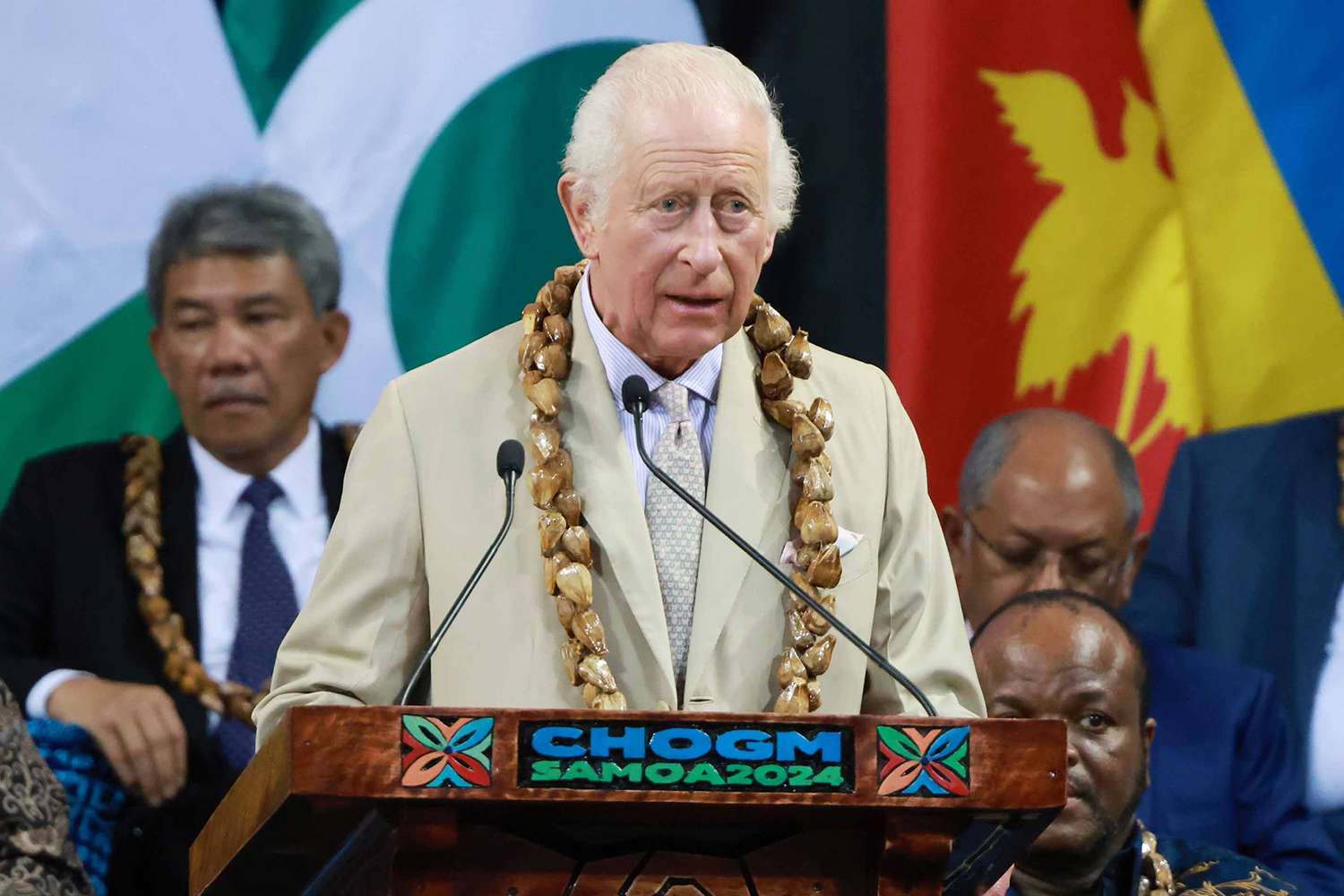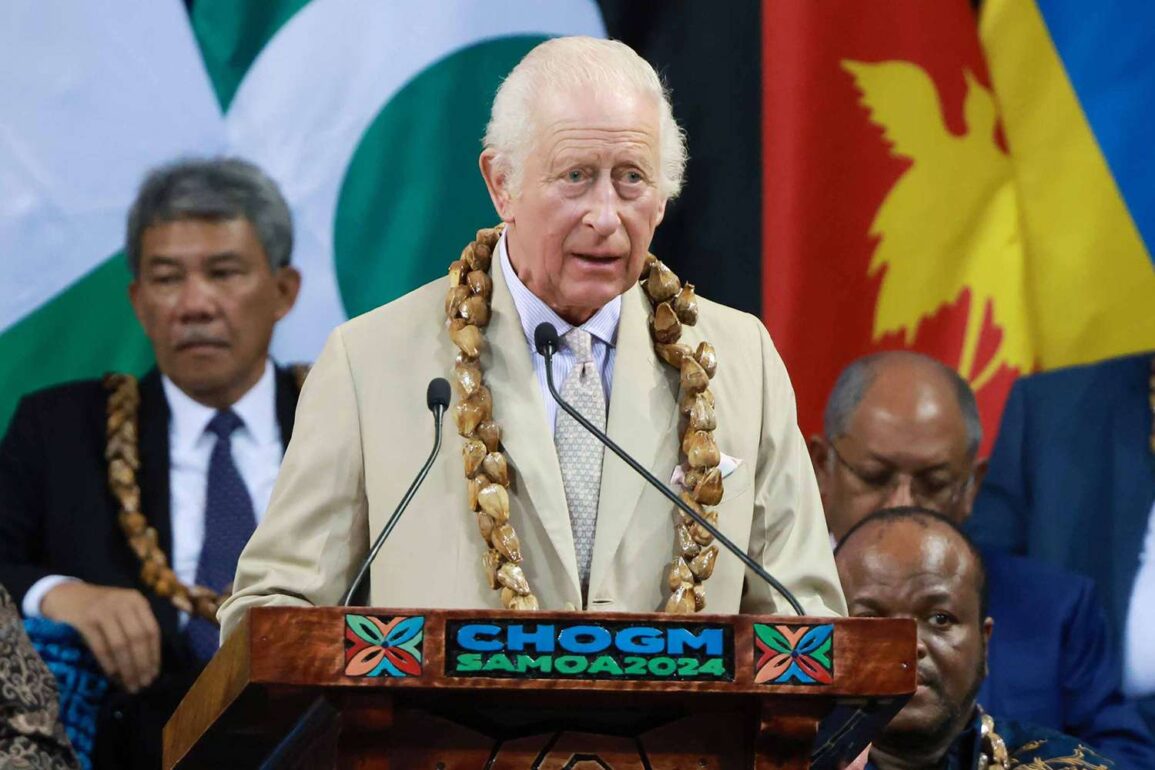
King Charles has acknowledged that “the most painful aspects of our past continue to resonate,” as leaders of countries linked to Britain raise the issue of reparations for slavery.
The King, 75, making his first speech as Head of the Commonwealth in Samoa on Friday, Oct. 25, urged leaders to find “creative ways” to conquer inequalities.
Charles didn’t directly speak about reparations for the Atlantic slave trade, in which Britain took a leading role. The issue is dominating debate at the conference amid a report from the BBC, in which diplomatic sources told the outlet that some Commonwealth leaders want to begin “meaningful conversation” around the U.K. paying reparations for the country’s role in the slave trade.
The U.K. Prime Minister Keir Starmer, who is also in Samoa, has said that his focus was on the present issues. “Of course slavery is abhorrent to everybody; the trade and the practice, there’s no question about that,” he told the BBC on Thursday, Oct. 24 “But I think from my point of view… I’d rather roll up my sleeves and work… on the current future-facing challenges.”
Chris Jackson/Getty
Furthermore, the Chancellor of the Exchequer Rachel Reeves, who runs the country’s finances, reiterated that point adding, “I understand why they make those demands but that’s not something that this government is doing.”
Some of those supporting calls from Caribbean nations for reparations believe the King should lead the way, advocate Laura Trevelyan told PEOPLE Charles should make a “meaningful financial gesture” on behalf of the royal family,
But whatever Charles’ personal opinions, he must tread a fine line as a constitutional monarch and not go against the wishes or policies of the elected U.K. government.
He said on Oct. 25, “Our cohesion requires we acknowledge where we have come from. I understand, from listening to people across the Commonwealth, how the most painful aspects of our past continue to resonate,” the Daily Telegraph reported.
“It is vital, therefore, that we understand our history — to guide us to make the right choices in the future.”
He added, “None of us can change the past. But we can commit, with all our hearts to learning its lessons and to finding creative ways to right inequalities that endure.”
Victoria Jones-Pool/Getty
With his wife Queen Camilla, 77, watching from the front row, Charles added, “Where inequalities exist, for example, in access to opportunity; to education; to skills training; to employment; to health; and to a planet in whose climate our human race can both survive and thrive, we must find the right ways, and the right language, to address them.”
The couple had spent the earlier part of the day — their second full day in the Pacific island — focusing on other causes they are keen to promote and support.
Aaron Chown – Pool/Getty
Continuing her commitment to women and girls who have suffered sexual and domestic violence, Camilla visited the Samoa Victim Support Group.
She heard from the survivors about their experiences of gender-based violence and the help they and their families have received from the center, before opening the “Queen Camilla Pre-School of Hope.”
Charles, meanwhile, was shown around the King’s Garden, which has been created in his name, and — fulfilling one of the most enduring of royal activities — planted a commemorative tree.
Chris Jackson/Getty
The garden was created by clearing all invasive plants and populated largely with species with predominantly “royal” purple flowers and leaves. It is designed in a shape that depicts a crown and also contains native king ferns, English roses, and teuila (red ginger), the national flower of Samoa.
Later, Charles and Camilla hosted the official dinner and reception for the Commonwealth Heads of Government Meeting, where the King delivered some more remarks.



